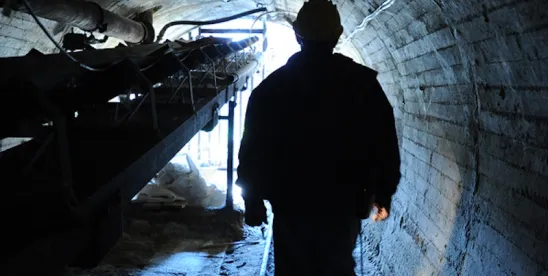Mine safety attorneys sometimes hear from mine operators who are in the midst of a difficult Mine Safety and Health Administration (MSHA) inspection. They share how they plan to push back in one of two ways in the short term.
Quick Hits
- Value of closeout conferences: Close-out conferences provide valuable insights into the basis for the violations and gravity cited, which are crucial for preparation and decision-making regarding future actions.
- Preparation and participation: Management may want to discuss observed conditions and issued citations, before and during the conference, and focus on listening, asking questions, and providing accurate facts to challenge allegations without antagonizing the inspector.
- Effective strategy: Focusing on well-supported facts and presenting strong arguments, rather than aggressively confronting inspectors, can achieve better outcomes in informal conferences and future litigation.
One is to skip the closeout conference and tell the inspector they are taking the citations to court. The other is to give the inspector a piece of their mind at the inspection close-out conference.
In many cases, they are frustrated by a sharp increase in the number of citations or a ratcheting up in gravity that they have not seen before. This frustration is often escalated by their understanding of the negative impact that this kind of violation and gravity spike can have on the operation’s violation history and on future civil penalties.
This reaction is understandable, but it is moments like this when it may make sense to step back and develop a strategy for the closeout conference—and beyond.
The Conference’s Value
No matter how hard the feelings are from a difficult inspection, the closeout conference offers the opportunity for supervisors and managers to learn more about the basis for the allegations of violation and gravity that have been cited.
MSHA’s “Citation and Order Writing Handbook” states the following: “At the conclusion of any enforcement-related inspection or investigation, inspectors shall discuss the general findings and each violation issued with the mine operator and, if applicable, with contractors and / or miners’ representatives. Also, during this conference, inspectors will inform and discuss [if] citations or orders will be evaluated as possibly flagrant and / or any that will be recommended for possible special assessment.”
Generally, there is information to be had in these meetings that can be critical in the preparation for an informal conference or the decision-making regarding whether to initiate a contest.
These meetings can also allow operations personnel to get a feel for the focus and tone of the inspection. It also affords an opportunity to ask questions that may not have been addressed.
Of course, the effectiveness of this information is only as good as the inspector’s willingness to share observations and rationale regarding inspection findings—and that willingness is not always on display.
Some inspectors bristle at being asked questions. They see it as a challenge, and they refuse to respond. Nonetheless, it is worthwhile to make the effort.
An Effective Strategy
While it is generally a good idea to participate in a closeout conference, there are some caveats.
First, an effective closeout begins with preparation. Try not to walk into the closeout cold. The company’s management team may want to gather beforehand and discuss the conditions that were observed and the citations that have been issued or are anticipated.
Second, that discussion should dictate the level of participation in the closeout. For instance, if the inspector has alleged high negligence or even aggravated conduct on the part of the company, it may be better to listen to the inspector, ask questions, and take notes to enable the management team to check the facts and hone their position for an informal conference.
Third, to the extent that the management team wants to weigh in on the allegations, challenging the facts or gravity, or providing mitigating facts that undermine the alleged negligence or gravity, the team may want to make sure their facts are straight before going into the conference, because the inspector is writing down what they say.
The enforcement action can certainly get worse if the operator’s facts are not accurate, or if a statement is made that is perceived by the inspector to support higher gravity.
Finally, telling the inspector that they don’t know what they are doing, don’t understand the regulations, or that they have bad motives—may feel good in the moment. This, however, almost never moves the ball forward in a positive way.
In some situations, it can make future informal conferences and litigation more difficult because MSHA’s perception that the conduct at the closeout was an effort at intimidation. The better strategy is to focus on the citations, challenging them with good facts and strong arguments regarding the proper interpretation of the standards.
That effort always starts with an effective closeout.





 />i
/>i
